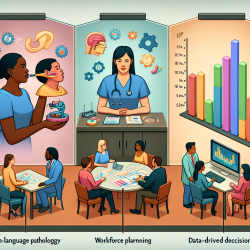The management of type 1 diabetes (T1D) is a complex challenge, particularly when it comes to addressing severe hypoglycemia. The recent study on the Hypoglycaemia Awareness Restoration Programme (HARPdoc) offers valuable insights into how practitioners can enhance their approach to diabetes care. This blog post explores the key findings of the study and how they can be implemented in practice.
Understanding HARPdoc and Its Objectives
HARPdoc is a psycho-educational program designed to address cognitive barriers that hinder hypoglycemia awareness in adults with T1D. Unlike traditional programs that focus primarily on behavioral changes, HARPdoc incorporates cognitive-behavioral therapy techniques to tackle unhelpful beliefs about hypoglycemia.
The study compared HARPdoc with the Blood Glucose Awareness Training (BGAT), another established program aimed at improving glucose management through behavioral training. Both programs were delivered over six weeks and targeted adults with T1D who had impaired awareness of hypoglycemia despite optimized self-care.
Key Findings from the Study
- Both HARPdoc and BGAT significantly reduced severe hypoglycemia episodes over 12 and 24 months.
- HARPdoc was more effective in reducing unhelpful cognitions related to hypoglycemia avoidance.
- The program also showed a positive impact on reducing diabetes distress, anxiety, and depression scores compared to BGAT.
The results indicate that while both programs are effective in reducing severe hypoglycemia, HARPdoc offers additional benefits by addressing the psychological aspects of diabetes management.
Implementing HARPdoc in Practice
For practitioners looking to incorporate the findings of this study into their practice, here are some steps to consider:
- Integrate Cognitive Approaches: Incorporate elements of cognitive-behavioral therapy into diabetes education programs to address unhelpful beliefs about hypoglycemia.
- Focus on Emotional Well-being: Pay attention to the emotional aspects of diabetes management, offering support for anxiety and depression related to hypoglycemia.
- Encourage Continuous Learning: Stay informed about new research and developments in diabetes care through conferences, webinars, and publications.
- Collaborate with Psychologists: Work with mental health professionals to provide comprehensive care that addresses both physical and psychological needs.
The study underscores the importance of a holistic approach to diabetes management that goes beyond traditional methods. By focusing on cognitive barriers and emotional well-being, practitioners can enhance patient outcomes significantly.
To read the original research paper, please follow this link: A parallel randomised controlled trial of the Hypoglycaemia Awareness Restoration Programme for adults with type 1 diabetes and problematic hypoglycaemia despite optimised self-care (HARPdoc).










